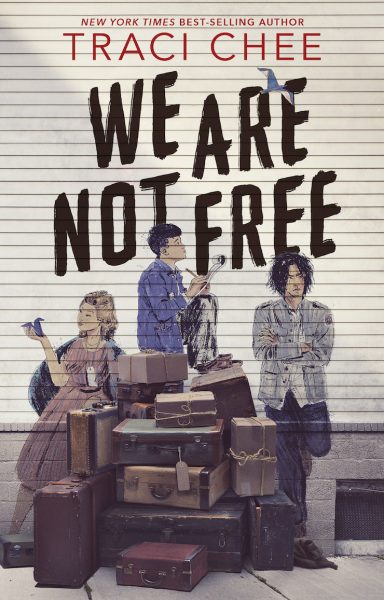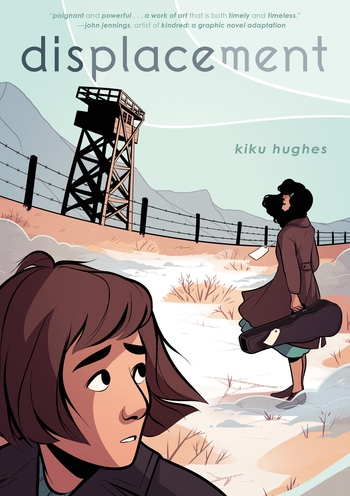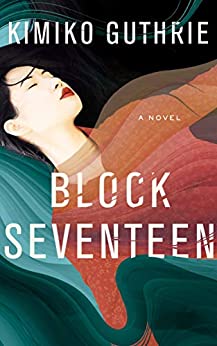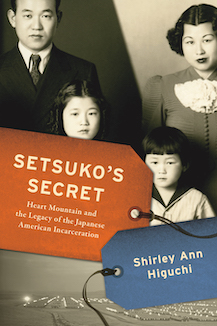New Books About the Japanese American Incarceration during World War II Illuminate History with Fresh Perspective from Yonsei Artists and Writers
Traci Chee’s We Are Not Free is powerful and personal. Immediate, visceral, and so dang good. The YA historical is easily one of the most accessible books I’ve read centered on what our Nisei went through in camp and serving in the military while their families were behind barbed wire. It captures time, place, and sentiment with richly drawn characters and delivers it all with a contemporary voice that invites readers in.

ARC Provided by the Publisher, I Also Bought My Own Copy
We Are Not Free is told from the perspectives of 14 teenagers (I know, but Chee totally manages it) from San Francisco’s Japantown neighborhood. The large cast allows readers to identify with multiple characters, as they contend with their community and friend group being ripped apart as they’re sent to temporary detention centers and later to incarceration camps far from the West Coast.
I loved how Chee captures the range of emotions and sentiments — rage, sarcasm, disillusionment, disappointment. Shig’s line about the Japanese American Citizens League of the time is one of my favorites: “They told us all to cooperate when the WRA [War Relocation Authority] started packing us off to desert camps. I bet they’d bend over and kiss their own asses if Washington asked them to.” In a single line, you know it wasn’t all just docile acceptance.
Chee incorporates an incredible amount of the history in the book, from the No-No Boys and Tule Lake, to the bravery of the 442nd Regimental Combat Team to a passing mention of Korematsu v. US.
Academically, it is a rich platform for discussion about racism, propaganda, and the villainization of immigrants and their American born children. And it’s a book I would love to see as part of US History curricula. But We Are Not Free is not just the major beats of history during the incarceration. It’s also a coming-of-age story, a love story, and the beginnings of a story that we’re still living out two generations on.
On a personal note, there are so many small delights in this book for me as a Japanese American reader. One character’s nickname, Yum-Yum, comes from the fact that her last name is Oishi (delicious/tasty in Japanese). It’s in how Chee’s characters seem so familiar, reflecting the aunties and uncles I grew up around. And above all, it’s in how effective it is at closing the gap between past and present. This is an important book, one I hope you’ll read.
P.S. The romance reader in me could not help but be all in my feelings as Twitchy is headed back to the war, when Keiko thinks, “For a moment, the world is a kiss that tastes of whiskey.” It’s the culmination of a night among friends that’s poignant, bittersweet, and just gets you right in the feels.
5 stars
Traci Chee celebrates her book launch in a virtual event tonight at 6 p.m. PT. She’ll be joined by Misa Sugiura, author of This Time Will Be Different (review), and three special guests.
To learn more about the Japanese American Incarceration, visit Densho.org.
Get We Are Not Free from Bookshop.org | IndieBound| Amazon | Apple Books
This post includes affiliate links which kick us a small percentage at no cost to you if you use them to shop. If found this review useful, please use them to support my work – thanks!

In this graphic novel, Kiku Hughes merges memoir and fiction, as her main character is displaced in time, going back to when her grandmother was incarcerated at Topaz in Utah. It’s a gorgeous meditation on memory, and the legacy of the internment that directly spotlights the parallels in the Muslim Ban and other anti-immigrant moves made by the Trump administration over the last four years.
Hughes integrates real life events to ensure that people like James Wakasa, who was shot and killed at Topaz, aren’t forgotten. She calls out Miné Okubo, Gordon Hirabayashi and Mitsuye Endo, to ensure their names and deeds aren’t known just by the JA community, but by Americans at large. It’s a fast read, in terms of absorbing the story, but you owe it to yourself to sit with the images. Like really sit with them.
Displacement is a fantastic, beautifully rendered book that should be read not just by middle grade or YA readers, but by everyone whose social studies and US History classes glossed right over the Japanese American Incarceration.
5 stars
Get Displacement from Bookshop.org | IndieBound |Apple Books
Two more new or upcoming books by Japanese American authors also on the radar.

BLOCK SEVENTEEN
by Kimiko Guthrie
SPECULATIVE FICTION
AVAILABLE NOW
Blackstone Publishing Synopsis:
Akiko “Jane” Thompson, a half-Japanese, half-Caucasian woman in her midthirties, is attempting to forge a quietly happy life in the Bay Area with her fiancé, Shiro. But after a bizarre car accident, things begin to unravel. An intruder ransacks their apartment but takes nothing, leaving behind only cryptic traces of his or her presence. Shiro, obsessed with government surveillance, risks their security in a plot to expose the misdeeds of his employer, the TSA. Jane’s mother has seemingly disappeared, her existence only apparent online. Jane wants to ignore these worrisome disturbances until a cry from the past robs her of all peace, forcing her to uncover a long-buried family secret.
As Jane searches for her mother, she confronts her family’s fraught history in America. She learns how they survived the incarceration of Japanese Americans, and how fear and humiliation can drive a person to commit desperate acts.
In melodic and suspenseful prose, Guthrie leads the reader to and from the past, through an unreliable present, and, inescapably, toward a shocking revelation. Block Seventeen, at times charming and light, at others disturbing and disorienting, explores how fear of the “other” continues to shape our supposedly more enlightened times.
Get Block Seventeen from Bookshop.org | IndieBound| Amazon | Apple Books

SETSUKO’S SECRET
by Shirley Ann Higuchi
Non-fiction
Release Date: September 15, 2020
Synopsis from University of Wisconsin Press:
As children, Shirley Ann Higuchi and her brothers knew Heart Mountain only as the place their parents met, imagining it as a great Stardust Ballroom in rural Wyoming. As they grew older, they would come to recognize the name as a source of great sadness and shame for their older family members, part of the generation of Japanese Americans forced into the hastily built concentration camp in the aftermath of Executive Order 9066.
Only after a serious cancer diagnosis did Shirley’s mother, Setsuko, share her vision for a museum at the site of the former camp, where she had been donating funds and volunteering in secret for many years. After Setsuko’s death, Shirley skeptically accepted an invitation to visit the site, a journey that would forever change her life and introduce her to a part of her mother she never knew.
Navigating the complicated terrain of the Japanese American experience, Shirley patched together Setsuko’s story and came to understand the forces and generational trauma that shaped her own life. Moving seamlessly between family and communal history, Setsuko’s Secret offers a clear window into the “camp life” that was rarely revealed to the children of the incarcerated. This volume powerfully insists that we reckon with the pain in our collective American past.
Get Setsuko’s Secret from Bookshop.org | IndieBound| Amazon




